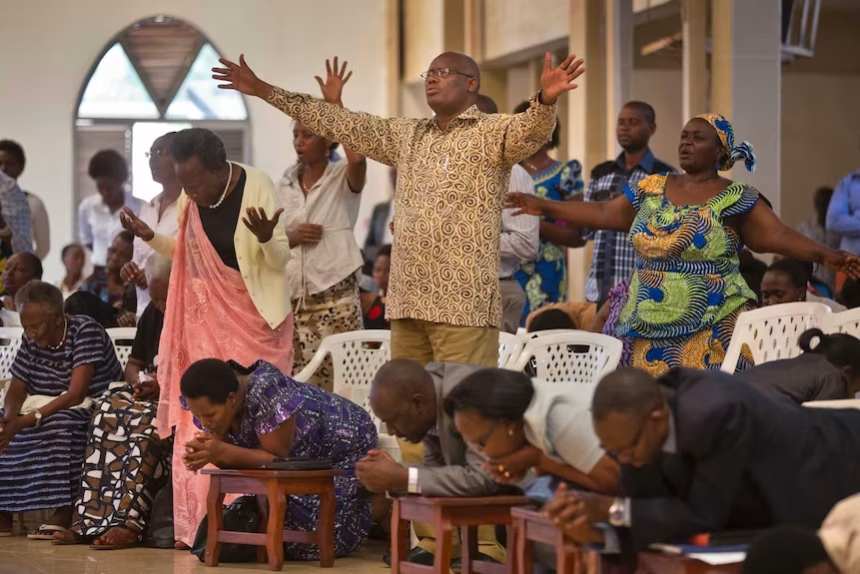Rwandan President Paul Kagame has indicated he may impose a tax on church collections in an effort to curb the exploitative practices of some evangelical leaders.
In his first speech following his recent inauguration, Kagame condemned religious figures who misuse their positions to manipulate and extort money from congregants.
“These deceitful individuals who exploit religion and churches to swindle people out of their money may leave us with no choice but to impose taxes on the funds they collect,” Kagame stated.
Rwandan officials announced that approximately 8,000 churches were shut down this week for operating illegally and failing to meet infrastructure standards.
After overseeing the swearing-in of reappointed Prime Minister Edouard Ngirente and new members of parliament, Kagame vowed to continue cracking down on corrupt preachers and their institutions.
- The poor are targeted
“If truth is to be told, these mushrooming churches are just there to squeeze even the last penny from poor Rwandans, as those who own them enrich themselves,” said Mr Kagame.
Rwanda has seen a surge in the number of Pentecostal churches, many of which follow prosperity gospel teachings, drawing in large numbers of impoverished individuals. “We’ve witnessed instances where these cult leaders have manipulated and brainwashed people, even leading them to death by starvation and other harmful practices. This has happened in other countries too,” a statement said.
Regulating preachers has been a challenge beyond Rwanda as well. Just last week, Uganda announced plans to release a white paper on worship regulation following reports of clerical extortion.
In Kenya, the courts are currently handling the case of Paul Mackenzie and his followers, who are accused of encouraging deadly fasting among their congregation.
The Rwanda Governance Board (RGB), which oversees religious organizations, reported that out of over 13,000 churches inspected last month, about 59.3 percent have been shut down for failing to meet regulatory standards.
“The closure of these places of worship came after routine inspections as per our mandate, we had given these churches ample time to improve but they didn’t so we had to shut them down,” said Usta Kaitesi, the CEO of RGB.





